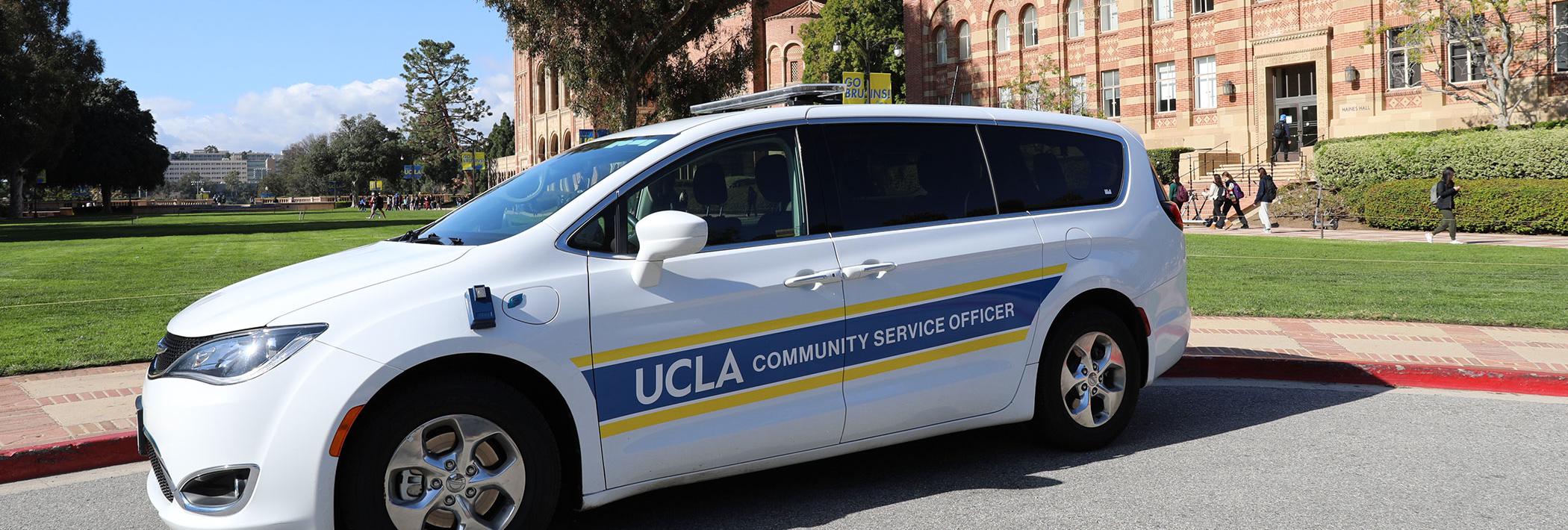Your Safety First: Essential Campus Safety Services & Resources
At UCLA, your safety is our top priority. We are committed to providing a secure environment where you can focus on your studies and enjoy campus life. Our comprehensive range of safety services is designed to ensure you have the support and resources you need. Explore the following services to stay informed and feel confident on campus.
Bruins Safe. Bruins Ready.
- Register for BruinALERT emergency notifications.
- Download the Bruins Safe App on your mobile device(s).
- Check Bruins Safe Online for advisories and campus air quality.
Emergency: Calling 9-1-1
911 - Police, Fire or Medical Emergency
For police, fire, or medical emergencies, call 911 from any campus phone.
For non-emergency information, UCLA Campus Police at 310-825-1491
Use any Emergency Reporting System (ERS) call box.
UCLA Medical Center Emergency Room (24 hours) - 310-825-2111
UCLA Counseling and Psychological Services (24 hours) - 310-825-0768
Report a Concern or Safety Issue
Personal Safety Services
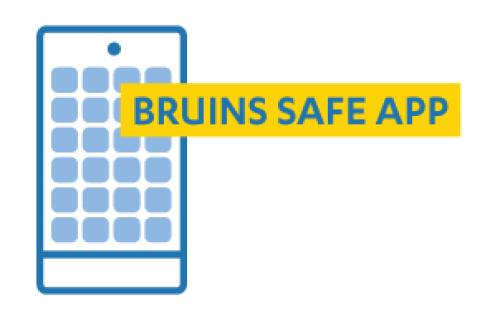
Bruins Safe app
Get the Bruins Safe app to receive instant notifications and instructions from when on-campus emergencies occur, contact campus safety staff quickly for help during an emergency, access important safety resources and report hazards, near misses and other safety concerns.
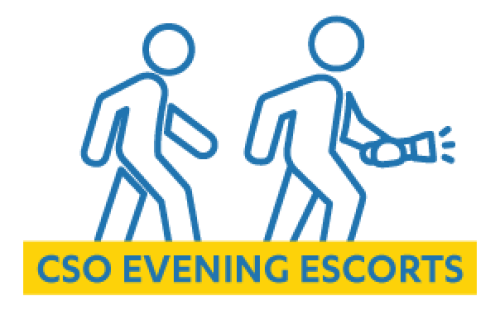
Community Service Officer (CSO) Escorts
Available every day of the year from dusk until 1 a.m. Learn more about CSO evening escorts, request with the Bruins Safe app or call (310) 794-9255. Please allow 15 to 20 minutes for your escort to arrive.
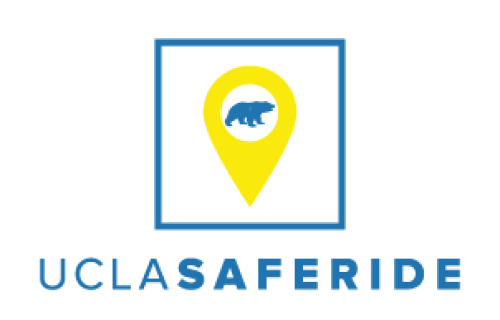
UCLA SafeRide
Complimentary campus transportation between campus buildings, on-campus housing and nearby residential areas for all students, staff, faculty and visitors in fall, winter and spring quarters. On-demand rides can be requested Monday - Friday from 7:00 p.m. to 12:00 a.m. (excluding holidays and breaks) using the TripShot app.
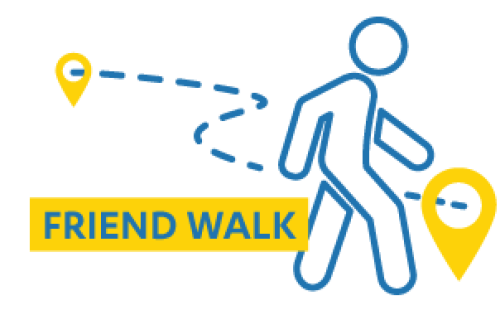
Friend Walk
Accessed through the Bruins Safe app, Friend Walk lets a friend or family monitor your journey and, if necessary, trigger an emergency call.
Safety Information and Resources
Emergency Procedures
Helpful guidance on how to prepare for and respond during various types of emergencies, including natural disasters and public safety threats.
Emergency Preparedness
Preparation enables you to effectively assist yourself, your family, your neighbors and your colleagues during emergencies, bridging the gap until first responders arrive.
Personal Safety Tips
Be alert and aware of the people around you, especially in locations and situations which would make you vulnerable to crime, such as alleys and dark parking lots.
Residential Safety
UCLA provides safety services and resources to residents, including 24-hour support from Residence Life staff, community patrols, housing dispatch, evening walking escorts on and close to campus, and more.
Crime Prevention & Education
Discover the many ways you can help prevent crime and protect our campus community through safety information sessions, exhibition tables, online resources, presentations, workshops and sight security surveys.
Cybersecurity
Protection against cybersecurity threats, including phishing and hacking, alongside personal data privacy awareness.
Mental Health & Wellness
Knowing where and how to access key services is important. At UCLA, several offices collaborate to provide support, guidance and care to Bruins.
COVID-19 Safety
Learn about campus COVID-19 protocols and compliance. Includes latest campus communications and current health requirements and recommendations.
Additional Campus Support Organizations & Programs
For All Bruins
The Office of Campus Safety leads efforts to safeguard the well-being of our students, faculty and staff during campus emergencies. Includes UCLA PD and the Office of Emergency Management.
UCLA Environment, Health & Safety provides training and compliance services to promote sound health, safety and environmental stewardship for researchers, staff and students.
UCLA PD sets a standard of excellence in law enforcement and serves a multicultural, educational environment of over 82,500 faculty, staff and students in Los Angeles.
UCLA Fire (FDID 19945), is a California state fire agency pursuant to Health and Safety Code § 13146, with authority over all UCLA-owned and -occupied interests, both on and off campus.
The Civil Rights Office (CRO) was established in 2020 by UCLA’s Office of Equity, Diversity and Inclusion and is led by the Assistant Vice Chancellor for Civil Rights. It serves UCLA’s campus and the UCLA Health System and is comprised of the following units: Office for the Assistant Vice Chancellor for Civil Rights (OAVC-CR), Discrimination Prevention Office (DPO), Staff, Diversity & Equal Employment Opportunity Compliance Office (SD&C), and the Title IX Office (T9). For more information on these units, visit their individual pages.
The Title IX Office receives reports of gender discrimination, including allegations of sexual harassment and sexual violence.
Office of Ombuds Services provides assistance in resolving conflicts, disputes, or complaints on an informal basis for students, faculty, staff, and administrators.
The Clery Act requires UCLA to provide an annual safety and security report. Campus Security Authorities (CSA) are responsible for reporting Clery Crimes and incidents as described in the Clery Act to the UCLA Police Department.
The UCLA Office of Equity, Diversity and Inclusion (EDI) is committed to promoting the safety and well-being of all members of the Bruin community. Bruin Safety & Well-being from the Office of EDI features a collection of resources and services to assist students, faculty and staff during difficult times so that we can all safely and mindfully navigate our own educational or career journeys.
Semel HCI acts as a spark plug and home for health-related innovation on campus, helping bridge diverse departments and stakeholders, and leverage the strengths of individuals and institutions on and off campus. Its seven thematic subcommittees work to create academic, experiential and structural approaches to living well through curricula, programming, communication and branding, research, operations and service. In doing so, Semel HCI aims to reduce health inequities, in turn building a more socially just community.
Campus Assault Resources & Education (CARE) provides a safe place for survivors of sexual assault, dating and domestic violence, and stalking to receive confidential support and advocacy. Custom workshops and trainings are offered on a variety of topics related to sexual violence.
The Santa Monica-UCLA Medical Center Rape Treatment Center provides victims highly specialized emergency medical care, forensic services, counseling, advocacy, and information about their rights and options to support them in making informed choices and decisions 24 hours a day, 7 days a week, free of charge.
Review important polices regarding events and time, place and manner on the Administration website.
For Students
Be Well Bruin is a comprehensive resource directory that highlights UCLA’s various resource centers, programs and departments that support student health and well-being. There are more than 100 campus resources available on the site. Explore the resource guide, individual spotlights and a variety of frequently asked questions students tend to have. Our goal is for students to use this website as a starting point to being a Bruin that is well and thriving.
The Arthur Ashe Student Health and Wellness Center (The Ashe Center) provides quality, accessible, state-of-the-art healthcare and education to support the unique development of UCLA students.
24/7 Nurse Line (Available AfterHours)
Counseling & Psychological Services (CAPS) is a multidisciplinary student mental health center for the UCLA campus.
Consultation & Response Team identifies students in crisis, assesses distressed students’ needs, and directs them to appropriate resources.
Case Management Services offers both in person and virtual appointments and training sessions. To initiate contact with Case Management Services please visit Refer a Student. These resources are to be used in conjunction with the Red Folder.
Student Legal Services provides legal assistance to current UCLA students, including preparation of documentation for protective orders.
The RISE Center’s core mission is to uplift and support every Bruin’s well-being by providing the education, resources and tools needed to foster health, healing and hope for themselves and the world around them.
For Staff and Faculty
UCLA Staff & Faculty Counseling Center provides consultation, training, crisis intervention, counseling, and referral services to UCLA departments, staff, and faculty.
Call 310-794-0245
Employee Disability Management Services evaluates and implements job accommodations for staff and faculty with physical or mental disabilities.
Call 310-794-6948
The Threat Management Unit (TMU) at the University of California, Los Angeles (UCLA) Police Department investigates and manages cases of harassment, stalking, threats, and workplace violence. The TMU also offers training on workplace safety, active shooter incidents, and how to deal with confrontational people.
UCLA is committed to providing a safe work environment for faculty, staff, students and visitors - one that is free of violent behavior and threats of harm. UCLA prohibits violent behavior and threats of harm affecting the workplace. Such behavior violates both law and University policy. The Behavioral Intervention Team (BIT) is a multidisciplinary team consisting of representatives from Campus Counsel, Staff & Faculty Counseling, Insurance & Risk Management, UCLA Police Department and Employee & Labor Relations.
The UCLA Health Threat Assessment Team (TAT) is a multidisciplinary group that addresses concerning or disruptive behaviors at UCLA medical facilities. The TAT can be contacted by calling 310-267-7100 or emailing workplaceviolence@mednet.ucla.edu.
The UCLA Behavioral Intervention Team developed the Employees in Distress Guide to aid in assisting campus-based employees in their response to those who may pose a threat to self or others.

